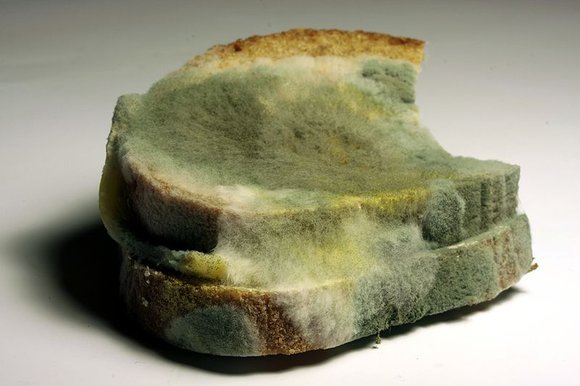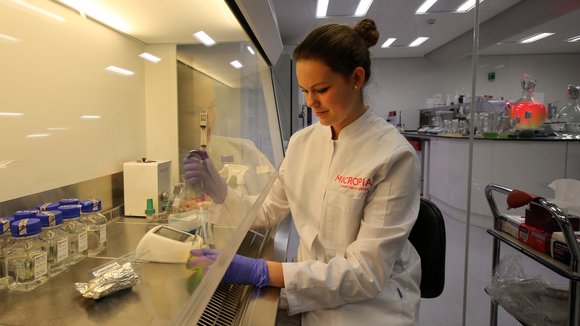I’ve just come back from travelling for six months and during my travels I found a place where they sold Spirulina power shots. Spirulina is a cyanobacterium that is used in many food supplements and that you can also find in Micropia. I also proudly told my fellow travellers about the mould that we found on old sandwiches in the hostels where we stayed.

“I proudly told my fellow travellers about the mould on old sandwiches.”
My name is Ilja and I work at the Micropia lab. I am very happy to be here! This is because I was not sure that I would be able to come back after my backpacking adventure. Before embarking on my travels, I worked as a temp for three months when Micropia was first set up. During my travels I received the good news that I would be able to return to Micropia as a lab technician – and I booked my return flight within a week!
I feel like I’m back home, and yet there are noticeable changes. The greatest changes have occurred at the lab itself, where many of our processes now run much more efficiently. The breeding of microbes is in the process of being optimized and the same goes for the museum’s installations.
For example, we have just received an automatic cell counter. It’s a small machine that measures how many cells per milliliter can be found in a drop of algae or bacteria on average, and how large these cells are. The size tells us how fast the cells grow. We decided to waste no time and test the machine immediately – if we can measure doubling time and growth speed in this way then that would save some time.

Ilja using the cell counter at the Micropia lab.
The team of volunteers has also changed since I left. From university students to pensioners, and from immunologists to medical biologists: we have a great mix of people here. Without these amazing people there would be no Micropia lab. They are so motivated and eager! Sometimes we receive emails containing interesting facts on microbes in the middle of the night.
Our new ‘ lab talks ’ are also fun and interesting: twice a day, lab technicians explain to the public what we do back there in Micropia. My colleagues and I then enthusiastically explain what a tardigrade eats, how an alga can grow in a lab without sunlight and why we need to keep our working environment as clean as possible.
Okay, the microbes need my attention again now, but I’ll soon come back to let you know what’s going on in the lab.
Bye for now, Ilja
